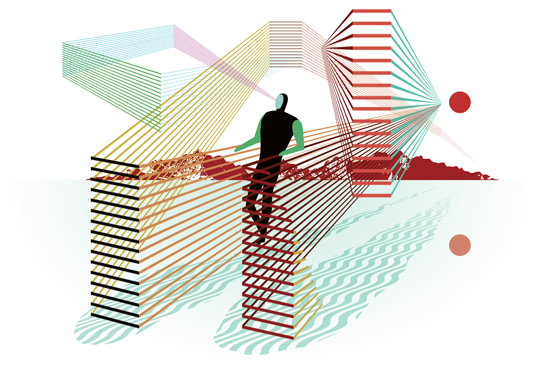Many times I hear students say, “I don’t want to think—I just want to sit.” They fear that any analytical process is too “mental” and will only lead to more of the conceptual, discursive thinking that already overburdens the Western approach to life. For example, one time, when I led a program on Contemplative Meditation, one of the participants asked me for a private interview after my opening talk. She told me, “I do not want more concepts. I just want to rest my mind.” I replied, “I do not want more concepts either, but we all already have a lot of concepts in our minds. We need to put them to use in a good way that is helpful.” At the end of the program I saw this participant again, and now, after practicing contemplation, she told me that her view had changed. She saw for herself that it was not about adding more mental concepts.
I have another student who describes her mind as a jackhammer. Obviously none of us wants lots of thoughts and emotions noisily busting up our peace, but if that is what we have, we can work with it. We can use our conceptual mind in a way that will actually lead to a more peaceful and contented mind. To get this mind, we initially have to do a lot of observation and thinking about it. It is interesting, and a little humorous, to realize that thinking could be the way to bring an end to a lot of unnecessary thinking. I would offer for consideration that thinking and having a conceptual mind are not the problem, but how we get hooked and hoodwinked by our thoughts and emotions.
♦
From Your Mind Is Your Teacher, by Khenpo Gawang © 2013 Shambhala Publications. Reprinted with permission of the publisher. www.shambhala.com.
Thank you for subscribing to Tricycle! As a nonprofit, we depend on readers like you to keep Buddhist teachings and practices widely available.
